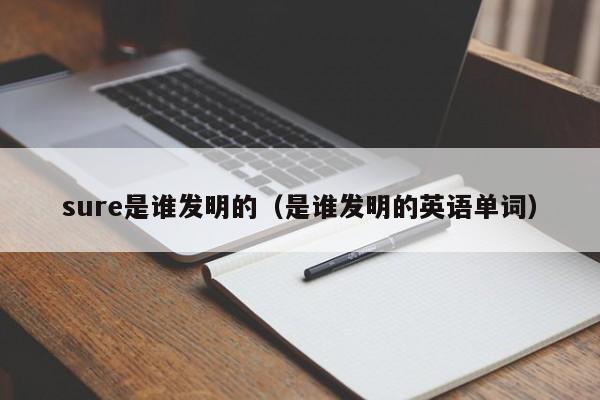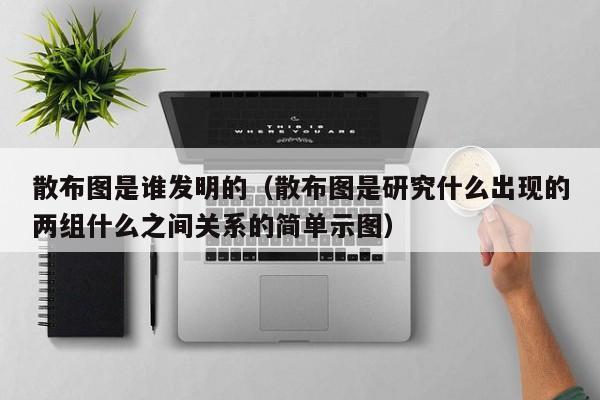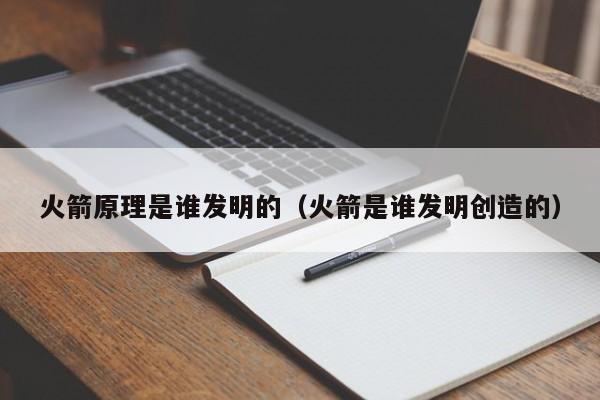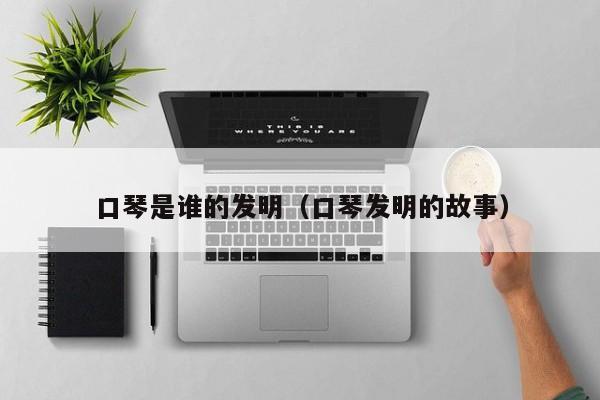baike.aiufida.com 小编在本篇文章中要讲解的知识是有关sure是谁发明的和是谁发明的英语单词的内容,详细请大家根据目录进行查阅。
文章目录:
- 1、小学常用最基本的1000个单词
- 2、爱迪生的英文简介
- 3、英语形容词的种类
- 4、SOS是哪个国家发明的求救信号
- 5、ABS防抱死系统是谁发明的
- 6、英语是谁发明的
小学常用最基本的1000个单词
啊 ah
啊哈 aha
爱 love
安静的 silent
安静地 silently
安全 safety
安全的 safe
安装;修理 fix
按顺序 in order
按照,如同,当…,因为 as
昂贵的 expensive
嗷,哎哟 ouch
澳大利亚 Australia
澳大利亚人 Australian Aussie
澳门 Macao
八 eight
八月 August
巴黎 Paris
巴西 Brazil
爸爸 dad
白色的 white
白天 daytime
百 hundred
百货商店 department
百万 million
柏林 Berlin
班级,年级 class
办公室 office
邦戴 Bondy
帮助 help
傍晚;晚上 evening
棒球,垒球 baseball
磅;镑 pound
保持;使得… keep
报纸 newspaper
抱怨 complain
杯子 cup
悲伤的;难过的 sad
北方;北部 north
北方的;北铅薯部的 northern
鼻子 nose
比…;比较… than
比较 comparison
比较级的 comparative
比利时 Belgium
比例,比率 rate
比萨饼 pizza
比赛 match
比赛,竞赛 competition
比赛者;选手 player
必须 must
必须的 necessary
毕业 graduate
壁炉 fireplace
避免 avoid
避暑胜地 summer resort
边 side
边;边缘 edge
边缘 rim
鞭炮 firecrackers
便帽;军帽 cap
便士 penny (pence)
便条;纸币 note
便宜的 cheap
变成;成为 become
变换,改变 change
遍及 throughout
标点符号 puntuation
标记;符号;痕迹 sign
标签 label
表达 expression
表格;构成,组成 form
表演;成绩 performance
别的,其他的;另外的人 other
别的;其他的 else
冰 ice
冰雕 ice carving
冰激凌 ice cream
冰山 iceberg
并排 side by side
病假 sick leave
病人 patient
拨(电话) dial
波士顿 Boston
玻璃(杯) glass
脖子 neck
博物馆 museum
不 not
不,不是;没有 no
不安的 restless
不安的 uneasy
不按次序排队的人 jumper
不出名的 unknown
不好不坏的,马马虎虎的 so-so
不见的 missing
不健康的 unhealthy
不久;很快 soon
不可能的 impossible
不平常的 unusual
不同;差异 difference
不同的 different
不喜欢槐碰者,厌恶 dislike
不走运的;不幸的 unlucky
布 cloth
布鲁塞尔 Brussels
部分 part
擦;磨 rub
猜 guess
猜想 suppose
裁缝 tailor
裁判,法官 judge
菜单 menu
参加 join
餐厅 dining-room
操场 playground
操作;动手术 operate
嘈杂的 noisy
嘈杂声吵族,响声 noise
草;草地 grass
厕所 toilet
叉子 fork
茶;茶叶 tea
茶壶 teapot
察觉;领悟;了解 realize
长的 long
长筒袜 stocking
尝味;有...味道 taste
畅销货(书) best-seller
唱唱歌 sing
唱诵 chant
抄写,誊写;复制 copy
超过…,经过…;过去(的) past
超级市场 supermarket
朝着…;向… towards
潮湿的 moist
潮湿的 wet
车站 station
陈列,展览 display
陈述 statement
称…的重量 weigh
成就;成功 success
成立;建立 found
成年人 adult
成员 member
城堡 castle
城市 city
城镇 town
乘…,通过… by
乘独木舟 canoe
乘客 passenger
乘以 multiply
吃 eat
池塘;水坑 pool
迟的 late
尺寸 size
尺子 ruler
冲;奔跑 rush
冲浪 surf
冲浪运动 surfing
冲浪者 surfer
虫;蠕虫 worm
宠物 pet
出口 exit
出去,在外面 out
出生(bear的过去分词) born
出声地, aloud
出现;露面 appear
出租车 taxi
除…之外 except
除非…;如果…不… unless
厨房 kitchen
穿着 wear
传播 spread
传单 leaflet
传递;通过 pass
传统的 traditional
传真 fax
窗子 window
床 bed
吹,刮 blow
春天 spring
磁带 tape
此后;自…以来;由于…;既然… since
此刻,瞬间 moment
从… from
从来不;决不 never
匆忙 hurry
聪明的;机灵的 clever
粗鲁的;激烈的;粗糙的 rough
粗体 bold type
粗心的 careless
粗心地 carelessly
村庄 village
错误 mistake
错误的 wrong
答复;回复 reply
打;撞;击中 hit
打包 pack
打电话,叫喊;电话通话 call
打开;开放的 open
打破(过去式) broke
打破,折断;课间休息 break
打扫;干净的, clean
打印机 printer
打字 type
大道,大街 avenue
大的 big
大的 large
大量地;猛烈地 heavily
大陆;本土 mainland
大门 gate
大米,米饭;水稻 rice
大声的;响亮的 loud
大声地;高声地 loudly
大厅 hall
大象 elephant
大笑;笑声 laugh
大写的 capital
大学生运动会 UNIVERSIADE
大众的;流行的 popular
代词 pronoun
代替 instead
带来;拿来 bring
单程的 one-way
单一的 single
担心,使…担心 worry
担心的,烦恼的 worried
但是;除了 but
蛋糕,,饼 cake
当然 certainly
岛屿 island
倒,灌;倾泻 pour
倒空,清空 empty
倒塌 collapse
倒下 fall
到…;往…;(不定式符号,无词义) to
到…里 into
到…上 onto
到处 everywhere
到达;抵达 arrive
到达;够着 reach
道路;公路 road
得到;到达 get
得分;获胜 score
德国 Germany
德国人 German(s)
的确;确信的 sure
灯笼 lantern
登记处 check-in
等候 wait
等候室 waiting room
低的 low
敌人 enemy
底部 bottom
地板 floor
地方 place
地理(学) geography
地面 ground
地球,地球仪 globe
地图 map
地下的 underground
地震 earthquake
地址 address
第……号 No. =number
第八 eighth
第二 second
第二十 twentieth
第二十一 twenty-first
第九 ninth
第三 third
第十八 eighteenth
第十二 twelfth
第四 fourth
第五 fifth
第一,首先;最初 first
电报 telegraph
电冰箱 fridge
电池 battery
电话;打电话 phone(=telephone)
电话;打电话给… telephone
电话传呼机 beeper
电脑,计算机 computer
电视机 TV
电梯;(云雾)消散 lift
电影 film
电影 movie
电影院;电影 cinema
电子的 electronic
电子邮件 e-mail
雕刻 carve
钓鱼 fishing
调查 survey
调羹;汤匙;勺子 spoon
调制解调器 modem
掉下,落下;滴,水滴 drop
顶部 top
定货单,点菜;订购, order
丢失 lose
丢失的 lost
东北;东北部 northeast
东方(的) east
东京 Tokyo
东西;事情 thing
冬天 winter
动物 animal
动物园 zoo
洞;坑 hole
都;全部;所有的 all
陡峭的,险峻的 steep
豆腐 tofu
独特的 unique
独自地 alone
妒忌的 jealous
短的 short
短袜 sock
堆 pile
队;组 team
队长(足球队);船长,上尉 captain
对不起的 sorry
对的;右边的;正好;恰好 right
对话 dialogue
多伦多 Toronto
多么;怎么样 how
多雪的;降雪的 snowy
多雨的;下雨的 rainy
多云的 cloudy
躲藏 hide
俄国;俄罗斯 Russia
俄国的;俄语;俄国人 Russian
呃,啊 er
儿子 son
耳朵 ear
二 two
二手的 secondhand
二月 February
发动 launch
发动机 engine
发光;照耀 shine
发明 invent
发明 invention
发明家 inventor
发生 happen
发送;寄;派遣 send
发现:找到 find
发现;发觉 discover
发型 hair style
发芽 sprout
发音 pronounce
发展 develop
乏味的 dull
法国 France
法国的;法语 French
法国人 Frenchman
翻译 translate
饭馆 restaurant
防止 prevent
妨碍;打扰 disturb
房顶 roof
房间;空间 room
房子 house
访问 visit
访问者 visitor
放 put
放松 relax
飞;乘飞机去;放(风筝) fly
飞机 aeroplane
飞机 plane
飞机场 airport
非常 very
非洲 Africa
肥胖的 fat
肥皂 soap
废物;浪费;废弃的 waste
肺结核 TB
分角色表演 role play
分类 classify
分享 share
分钟 minute
坟墓 tomb
粉红色 pink
风 wind
风筝 kite
疯狂的 crazy
蜂蜜 honey
夫妻,一对 couple
夫人 Mrs.
服务生 waiter
符号,象征 symbol
父母 parent; parents
父亲 father
付钱 pay
妇女 woman
妇女(pl.) women
复活节兔子 Easter Bunny
复述 retell
复数的 plural
复习 review
副词 adverb
覆盖 cover
改善 improve
改写 rewrite
改正;正确的; correct
干的;把…弄干 dry
干种子 berry
杆子 pole
敢于 dare
感恩节 Thanksgiving
感激的 grateful
感激的 thankful
感觉 feel
感谢 thank
感兴趣的 interested
刚;正好;仅仅 just
钢笔 pen
钢琴 piano
高的 tall
高的(地) high
高度 height
高尔夫球 golf
高兴;愉快 pleasure
高兴的 delighted
高兴的 glad
高兴的 pleased
高兴地,快乐地 happily
高音喇叭 loudspeaker
告诉;吩咐 tell
胳臂 arm
歌,歌曲;歌谣 song
歌唱者;歌手 singer
歌剧;戏剧 opera
个人的;私人的 personal
各个,每个 each
给 give
根据 according to
跟随 follow
更多的;更加 more
更好;较好的 better
更坏的;更差的 worse
更少的 less
更远的 farther
更早的;更早地 earlier
工厂 factory
工程 project
工程师 engineer
工具 tool
工人 worker
工作 job
工作 work
工作场所 workplace
公车停靠站 bus station
公车停靠站 bus stop
公共的;公众的 public
公鸡 rooster
公交车 bus
公斤;千克 kilo
公平的 fair
公司 company
公寓 flat
公园;停放(车辆) park
宫殿 palace
贡献 contribution
狗 dog
购买 buy
购物;买东西 shopping
孤独的 lonely
古代的 ancient
古典的,传统的 classical
谷仓 barn
鼓励 encourage
故事;(楼)层 story
雇员 employee
瓜 melon
拐弯处 turning
关闭 close
关闭 shut
关键的 critical
关门的 closed
关于…;大约 about
观点 opinion
冠军 champion
盥洗室;厕所 washroom
光;轻的,浅色的 light
广泛地;广阔地 widely
广告 ad(=advertisement)
规则;规定 rule
规则的,定时的 regular
轨道;跑道 track
轨道;铁路 rail
鬼 ghost
棍棒 stick
国际象棋 chess
国家的 national
果汁 juice
过程;经过;道路 course
哈佛大学 Harvard
报,广告 poster
海豹 seal
海底的 undersea
海豚 dolphin
海峡,航道;频道 channel
海鲜;海产品 seafood
海洋 ocean
海洋 sea
害怕的 afraid
害怕的 scared
害羞的;腼腆的 shy
汉堡包 hamburger
旱灾,干旱 drought
航班;飞行 flight
豪华,庄重的 grand
好;健康的;好吧 well
好的 good
好的 OK
好的:(身体)好的 fine
好几个 several
好哇 hooray
好象;似乎 seem
好心的 kind-hearted
合理的,公道的 reasonable
合适的 suitable
合同 contract
合作;协同工作 teamwork
何时;当…时 when
和;又;而 and
和…;有…;关于… with
河岸,银行 bank
核桃 walnut
黑板 blackboard
黑的 black
嘿 hey
很,十分 quite
很棒的;好极了的 terrific
很可能;大概 probably
哼 hmn
横穿…,穿过… across
烘烤 bake
红的 red
洪水;淹没 flood
猴子 monkey
后来;以后 later
厚的;粗的 thick
呼喊;喊叫 shout
呼吸 breathe
狐狸 fox
胡椒 pepper
胡萝卜 carrot
壶 pot
湖泊 lake
护士 nurse
护照 passport
花 flower
花费;度过 spend
花园;菜园 garden
华盛顿 Washington
滑冰;溜冰 skate
滑旱冰 roller-skating
滑稽的 funny
滑雪 ski
化石 fossil
化学 chemistry
化妆 costume
划船 boating
划分 divide
划水 paddle
画 draw
画家 painter
话题,主题 topic
怀基基 Waikiki
坏的 bad
欢呼 cheer
欢呼声 yippee
欢迎 welcome
还(没有) yet
环境 environment
患病的 sick
黄色的 yellow
黄油 butter
灰色的 grey
回,向后;背部 back
回答 answer
回来;归还 return
会话 conversation
会见,采访 interview
会见,遇见 meet
会议 meeting
昏暗的 dim
婚礼 wedding
混合 mix up
混合,混和 mix
活动 activity
活动的;动人的 moving
活着的 alive
火 fire
火车;训练,培养 train
火鸡 turkey
火箭 rocket
火奴鲁鲁 Honolulu
伙伴,搭档 partner
或者;否则 or
货物 load
获胜者 winner
饥饿的 hungry
机会 chance
机器 machine
机器人 robot
机械的 mechanical
鸡,鸡肉 chicken
鸡蛋,蛋 egg
积极的 active
激光唱片 CD
吉普车 jeep
极地 polar region
疾病 disease
几乎 almost
几乎不 hardly
计划 plan
记得 remember
记号;标记;痕迹 mark
记录 record
记忆存贮器 memory
记者 journalist
技师 mechanic
技术;工艺学 technology
季节 season
继续 continue
加 plus
加利福尼亚号 Californian
加拿大 Canada
加拿大人 Canadian
夹克衫 jacket
佳能(相机名) Canon
家;在家,到家 home
家庭 family
家庭作业 homework
家务 housework
家乡 hometown
甲壳虫乐队 Beatles
价格 price
价钱为…,花费 cost
驾驶 drive
驾驶;掌舵 steer
架子;搁板 shelf
假如;如果 if
假设 imagine
假设 suppose
坚果,果仁 nut
肩膀 shoulder
监视器 monitor
捡起 pick
减去 minus
剪刀 scissors
检查 check
建议 suggest
建议,忠告 advice
建造 build
建筑(物) building
健康 health
健康的 healthy
健康地 healthily
键盘 keyboard
江河;河 river
将 shall
将,愿意 would
将;应该 should
将近;几乎 nearly
将来 future
将要 will
奖品;奖赏 prize
降水 rainfall
交通 traffic
礁岩 reef
角落;拐角 corner
绞死 hang
饺子 dumpling
脚 foot (feet)
脚步;走;踏,踩 step
脚趾 toe
搅动 stir
叫,鸣叫 crow
叫喊(动物声) yip
轿车,汽车 car
教;教书 teach
教练 coach
教师 teacher
教室 classroom
教堂;教会 church
教育 education
接力(赛) relay
接收;收到;得到 receive
街道 street
节假日 holiday
节目 programme
节日(的) festival
结冰;凝固 freeze
结果 result
结婚 marry
结尾,结局 ending
她 she
她(宾格) her
她的 hers
她自己 herself
姐;妹 sister
解决;解答 solve
介绍 introduce
介意,关心;小心,照顾 care
借 borrow
借(出) lend
今天 today
今晚 tonight
金属 metal
仅仅;只有 only
紧张不安的 nervous
尽管,虽然 although
尽管;虽然 though
近来 lately
进步;提高;前进 progress
进攻;袭击 attack
进入;回车键 enter
经常 often
经理 manager
经验 experience
惊奇,惊讶;对…感到怀疑 wonder
惊奇,惊讶;使…吃惊 surprise
精彩的 wonderful
精确地 exactly
精神 spirit
景色 scenery
警察 policeman
警察;警方 police
警告;提醒 warn
警官,监督员 inspector
竞争 compete
镜子 mirror
九 nine
九十 ninety
九月 September
酒,红酒 wine
救生船 lifeboat
居住;生活 live
橘子,桔子;橙色的 orange
沮丧的 frustrated
句子 sentence
巨大的 huge
拒绝 refuse
俱乐部 club
俱乐部;社团 club
剧场;戏院 theatre
聚会 get-together
聚会 party
聚酯化合物 polyester
卷笔刀 sharpener
决定 decide
决定 decision
攫取;抓取 grab
咔哒声;发出咔哒声 click
咖啡 coffee
卡车 truck
开端;开始 beginning
开花 bloom
开罗 Cairo
开始,着手;出发 start
开始:着手 begin
看;看起来 look
海(河)滩 beach
待;当作 regard
看见;看望 see
看门人 gatekeeper
慷慨;豁达 generosity
考试 exam
考试 examination
科学 science
科学家 scientist
咳嗽 cough
可带走的(熟食) take-away
可口可乐 coke
可能的 possible
可怕的;感到不舒服的 terrible
可移动的 mobile
可以 may
可以…;行; could
课 lesson
课本 textbook
课桌 desk
空白处 blank
空的;清空,倒空 empty
空调机 air conditioner
空间;太空 space
空气 air
恐怖的 scary
恐怖主义者 terrorist
恐龙 dinosaur
口袋,衣袋 pocket
口对口的 mouth-to-mouth
口渴的 thirsty
哭;叫喊 cry
骷髅 skeleton
裤子 trousers
酷妹 foxy ladies
夸奖 praise
跨越,横跨;十字形 cross
快的;迅速的 quick
快的;迅速地 fast
快地;迅速地 quickly
快乐的;幸福的 happy
筷子 chopstick
宽的 wide
昆虫 insect
捆扎;系 tie
困难 difficulty
困难的 difficult
困难的;努力地;硬的 hard
括号 bracket
垃圾;废物 rubbish
垃圾;扔垃圾 litter
垃圾箱 dustbin
拉,拽,拖,拔 pull
蜡烛 candle
来 come
来回的;往返的(车票等) round-trip
栏目 column
蓝的 blue
篮球 basketball
篮子 basket
懒惰的 lazy
狼 wolf
浪;波浪 wave
老板 boss
老的 old
老虎 tiger
老鼠;鼠标 mouse
乐队 band
雷声 boon
累的 tired
冷的 cold
梨子 pear
离开 away
离开 off
离开;出发 leave
礼貌的 polite
礼貌地 politely
礼堂,演讲厅 auditorium
礼物 gift
礼物 present
里士满 Richmond
理解 understand
理由 reason
历史 history
历险,冒险 adventure
利物浦 Liverpool
例子;榜样 example
连接 connect
怜悯,同情;遗憾的事 pity
联盟 league
脸 face
练习 practice
练习 practise
练习;锻炼 exercise
凉爽的;(口语)酷 cool
两层 two-story
两次;两倍 twice
两者;(二者)都 both
两者都不;(两者)无一个 neither
了望塔 watchtower
邻居 neighbour
邻里;街坊 neighbourhood
铃响;打电话 ring
铃子 bell
零 zero
领导,带领 lead
令人兴奋的 exciting
令人厌烦的 boring
令人愉快的;好的,漂亮的 nice
另一,又一 another
溜溜球 yo-yo
流行歌手 pop singer
六 six
六月 June
笼子;鸟笼 cage
聋的 deaf
楼道,楼梯 stairway
陆地,大地;地球 earth
陆地;登陆,降落 land
录象 video
鹿 deer
路;方法 way
路线;去路 path
旅程 journey
旅馆 hotel
旅行 travel
旅行;绊倒,失误 trip
旅行者 traveller
旅游者;观光者 tourist
绿色的 green
伦敦 London
轮船 ship
轮流;翻转;变得 turn
轮子 wheel
罗马 Rome
妈妈 mum
妈咪 mummy
麻烦 trouble
马 horse
马卡哈 Makaha
埋葬 bury
卖;售 sell
满的 full
曼彻斯特 Manchester
慢的;慢慢地;放慢 slow
慢慢地 slowly
忙的 busy
猫 cat
毛笔 writing-brush
毛衣;运动衣 sweater
帽子 hat
没有人 nobody
没有什么东西 nothing
没有一个人;没有任何东西 none
每个 every
每个人;大家 everybody
每个人;大家 everyone
每件事 everything
美分 cent
美国 America
美国 USA
美国的,美国人 American
美丽的;漂亮的 beautiful
美利坚合众国 the United States
美味的 delicious
美元 dollar
门 door
门口的垫子 doormat
门铃 door-bell
猛敲;砰砰声 bang
迷、球迷、影迷 fan
谜语 riddle
米(长度单位) metre (meter)
秘密 secret
秘书 secretary
密码;符号;编码 code
蜜蜂 bee
绵羊 sheep
棉花 cotton
面包 bread
面粉 flour
面条 noodle
描述;描写 description
描述;叙述 describe
庙会 temple fairs
名字;姓名 name
明亮的 bright
明亮地 brightly
明天 tomorrow
明信片 postcard
模型;模范 model
摩托车 motorbike
魔法的 magical
魔鬼 thriller
末梢;结束 end
莫斯科 Moscow
墨尔本 Melbourne
墨西哥 Mexico
某人,有人 somebody
某人,有人 someone
某事(物) something
母鸡 hen
母亲 mother
木板 board
木头 wood
目的 purpose
目的地 destination
目击者 witness
牧羊人 shepherd
拿;握 hold
拿出;提供 offer
拿到;带到;花费,耗费 take
哪个;哪些 which
那个 that
那里;(引导词,无词义) there
那些 those
奶奶;婆婆 grandma
奶牛,母牛 cow
奶油;乳脂 cream
男衬衫 shirt
男孩 boy
男人 man
男人们(man的复数) men
男生 schoolboy
南方;南部 south
南瓜 pumpkin
难过地;悲哀地 sadly
难闻的 smelly
闹钟 alarm clock
能;可以;会 can
能量 energy
嗯 um
尼泊尔 Nepal
尼龙 nylon
你(们)的 your
你(们)的 yours
你,你们(主格,宾格) you
你好 hi
你们自己 yourselves
你自己 yourself
年 year
年级 grade
年龄 age
年轻的 young
鸟 bird
宁愿;更喜欢 prefer
牛奶 milk
牛肉 beef
纽基 Newquay
农场 farm
农民 farmer
农田 farmland
农业;耕种 farming
努力;尝试;射门 shot
女衬衫 blouse
女儿 daughter
女服;(统指)衣服 dress
女孩 girl
女裙 skirt
女士 Ms
女士;夫人 lady
女士;夫人 madam
女售货员 salesgirl
欧洲 Europe
爬 climb
排;行 row
就是1000个了 ,这是按汉语拼音顺序排的,细分太麻烦了,见谅
爱迪生的英文简介
托马斯·阿尔瓦·爱迪生(1847年2月11日—1931年10月18日),出生于美国俄亥俄州米兰镇,美国发明家、企业家。
Thomas Alva Edison (February 11, 1847 - October 18, 1931), was born in Milan, Ohio, USA, an American inventor and entrepreneur.
爱迪生是人类历史上第一个利用大量生产原则和电气工程研究的实验室来进行从事发明专利而对世界产生重大深远影响的人。
Edison is the first person in human history to use the principles of mass production and electrical engineering research to make invention patents that have a profound and far-reaching impact on the world.
他发明的留声机、电影摄影机、电灯对世界有极大影响。他一生的发明共有两千多项,拥有专利一千多项。爱迪生被美国的权威期刊《大西洋月刊》评为影响美国的100位人物第9名。
The phonograph, movie camera, and electric light he invented have had a great impact on the world. He has invented more than 2,000 inventions in his lifetime and has more than 1,000 patents. Edison was ranked 9th in the 100 characters affecting the United States by the American journal Atlantic Monthly .
1931年10月18日,托马斯·阿尔瓦·爱迪生在美国新泽西州西奥兰治逝世。
On October 18, 1931, Thomas Alva Edison died in West Orange, New Jersey, USA.
扩展资御核料:
爱迪生的主要发明:
1、1877年在门罗公园改进了早期由贝尔发明局拆悉的电话,并使之投入了实际使用。获得三项专利:穿孔笔、气动铁笔和普通铁笔。
2、1887年8 月 20 日发明留声机。
3、1878年爱迪生宣称要解决电照明的问题。英国皇家学会举办留声机展览。改良留声机。设计微音器桐乎, 扩音器,空中扬声器, 声音发动机, 调音发动机, 微热计,验味计等。
4、1878年7 月与宾夕法尼亚大学派克教授赴怀俄明观察日全蚀, 并用他发明的气温计测量太阳周围全体的温度 。
5、1878年10 月 5 日提出等一份关於铂丝「电灯」的专利申请。
6、1878年11 月碳阻送话器被送到英国进行试验。
7、1879—1880 经数千次的挫折发明高阻力白炽灯。 改良发电机。 设计电流新分布法,电路的调准和计算法。发明电灯座和开关。发明磁力析矿法。
8、1879年10 月 21 日发明高阻力白炽灯,它连续点燃了 40 个小时。
9、1880 研究直升机。获得电灯发明专利权。制成磁力筛矿器。

英语形容词的种类
1、品质形容词,表示人或物的品质,如:
He's the happiest man on earth.他是地球上最快乐的人。
The play was boring.那出戏很枯燥乏味。
这类形容词一般都能用于比较级,如bigger,simpler,younger.
2、类属形容词,表示属于哪一类,如:
These subjects reflect our daily lives.这些题材反映我们的日常生活。
这类形容词一般都不能用于比较级。
3、颜色形容词,表示颜色,如:
His face went purple with rage.他的脸气得发青。
这类词前面还可加light, pale, dark, deep, bright等词,如:
light brown hair淡蓝色头发;a pale green dress淡绿色裙服。
4、强调形容词,起强尘则调作用,如:
I have perfect trust in his judgment.我绝对信任他的判断力。
5、-ing形容词
(1)有大量现在分词仿禅正在或已经变为形容词,如:
It was a tiring journey.这真是一趟累人的旅行。
(2)一些-ing形容词并不与动词有关,如:
neighbouring cities邻近的城市;a cunning trick狡猾的计谋。
6、–ed形容词
(1)大多数-ed形派大棚容词都与及物动词有关,是由它们的过去分词变过来的,一般有被动意义,多数为品质形容词,如:
I felt depressed.我感到很沮丧。
(2)有些-ed形容词可说是类属形容词,也由动词的过去分词变来,但不能用于比较级,如:
She is a trained nurse.她是一个受过训练的护士。
(3)有少数-ed形容词,不是由动词,而是由名词变来的,如:
skilled workers技术工人;salaried class工薪阶层。
(4)有些-ed 的形容词包含有副词,如:
a well-equipped army一支装备精良的部队;a well-known musician著名的音乐家。
参考资料来源:百度百科--形容词
SOS是哪个国家发明的求救信号
SOS小史
船舶在浩瀚的大洋中航行,由于浓雾、风暴、冰山、暗礁、机器失灵、与其它船只相撞等等,往往会发生意外的事故。当死神向人们逼近时,“SOS”的遇难信号便飞向海空,传往四面八方。一收到遇难信号,附近船只便急速驶往出事地点,搭救遇难者。
许多人都认为“SOS”是三个英文词的缩写。但究竟是哪三个英文词呢?有人认为是“Save Our Souls”(救救我们);有人解释为“Save Our Ship”(救救我们的船)有人推测是“Send Our Succour”(速来援助);还有人理解为“Suving Of Soul”(救命)……。真是众说纷纭。其实,“SOS”的原制定者本没有这些意思。
事情还要追溯到本世纪初。1903年第一届国际无线电报会议在柏林召开,有八个海洋大国参加了会议。考虑到航海业的迅速发展和海上事故的日益增多,会议提出要确定专门的船舶遇难无线电信号。有人建议用三个“S”和三个“D”字母组成的“SSSDDD”作为遇难信号,但会议对此没有作出正式决定。
会后不久,英国马可尼无线电公司宣布,用“CQD”作为船舶遇难信号。其实这只是在当时欧洲铁路无线电通讯的一般呼号“CQ”后边加上一个字母“D”而已。海员们则把“CQD”解释为“Come quick, danger”(速来,危险)。因为“CQD”信号只是在安装有马可尼公司无线电设备的船舶上使用,所以这一信号仍然不能算作是国际统一的遇难信号。况且,“CQD”与一般呼号“CQ”只有一字之差,很容易混淆。
1906年,第二届国际无线电会议又在柏林召开。会议决定要用一种更清楚、更准确的信号来代替“CQD”。美国昌液代表提出用国际两旗信号简语的缩写“NC”作为遇难信号。这个方案未被采纳。德国代表斯利亚比-阿尔科无线公司的一位专家建议用“SOE”作遇难信号。讨论中,有人指出这一信号有一重大缺点:字母“E”在莫尔斯电码中是一个点,即整个信号“SOE”是“···— — —·”,在远距离拍发和接收时很容易被误解,甚至完全不能理解。虽答世然这一方案仍未获通过,但它却为与会者开阔了思路。接着,有人提出再用一个“S”来代替“SOE”中的“E”,即成为“SOS”。在莫尔斯电码中,“SOS”是“···— — —···”。它简短、准确、连续而有节奏,易于拍发和阅读,也很易懂。
在宣布“SOS”为国际统一的遇难信号的同时,废除了其他信号,其中包括当耐举物时普遍使用的“CQD”。但“SOS”并没有马上被使用,电报员们仍然偏爱于“CQD”,因为他们大多数过去是在铁路系统工作的,习惯使用“CQD”。
1909年8月,美国轮船“阿拉普豪伊”号由于尾轴破裂,无法航行,就向邻近海岸和过往船只拍发了“SOS”信号。这是第一次使用这个信号。直到1912年4月“泰坦尼克”号沉船事件之后,“SOS”才得到广泛使用。
?
另外还有一个最重要的原因,SOS这三个字母无论是从上面看还是倒过来看都是SOS,当遭遇海难,需要在孤岛上摆上大大的“SOS”等待救援的时候,头顶上路过的飞机无论从哪个方向飞来都能立刻辨认出来。
如Save Our Souls(拯救我们的生命!),Save Our Ship(拯救我们的船只!),Stop Other Signals(停止发送任何其他信号!),Sure Of Sinking(船就要沉了!)等。真是这样的吗?
其实,S.O.S.是国际莫尔斯电码救难信号,并非任何单词的缩写。鉴于当时海难事件频繁发生,往往由于不能及时发出求救信号和最快组织施救,结果造成很大的人员伤亡和财产损失,国际无线电报公约组织于1908年正式将它确定为国际通用海难求救信号。这三个字母组合没有任何实际意义,只是因为它的电码 ...---...(三个圆点,三个破折号,然后再加三个圆点)在电报中是发报方最容易发出,接报方最容易辨识的电码。
在1908年之前,国际公海海难求救信号为C.Q.D.。这三个字母也没有任何实际意义,尽管很多人认为它是Come Quickly, Danger.(快来,危险!)的首字母缩写。虽然1908年国际无线电报公约组织已经明确规定应用S.O.S.作为海难求救信号,但C.Q.D.仍然有人使用。泰坦尼克海难发生初期,其他船只和救助组织之所以没有能够及时组织施救,主要是因为他们不明白船上发报员开始发出的过时的C.Q.D.求救信号。直到整个船只都快没入大海才发出了S.O.S.求救信号,但到了此时谁可能还有如此的回天之力,拯救那些无辜的即将永远葬身海底的灵魂呢?
ABS防抱死系统是谁发明的
Teldix公司的博士工作组。制动防抱死系统(antilock brake system)简称ABS。作用就是在汽车制动时,自动控制制动器制动力的大小,使车轮不被抱死,处于边滚边滑(滑移率在20%左右)的状态,以保证车轮与地面的附着力在最大值。
ABS灯报警有以下几种情况:
(1)、汽车轮速传感器故障。通过电脑诊断仪可以清楚哪一个车轮轮速传感器出现问题。隐瞎
(2)、轮速传感器故障分为两种,一种是轮速传感器坏掉引起ABS报警。一种是ABS传感器脏了,导致ABS传感器不能够检测车轮转速而引起的ABS故障灯报警。如果是轮陪陪速传感器脏了,只要对传芦携蠢感器清洁一下就可以了。
(3)、轮速传感器线路故障。轮速传感器线路损坏,也会引起ABS故障。这种故障只能更换轮速传感器线束。
以上内容参考:百度百科-abs防抱死系统
英语是谁发明的
ORIGIN OF ENGLISH(当然是英国人发明的啦,欲知详情,请看下文,但我宁愿相信一门语言不是哪个人想发明就能发明出来的,大家觉得呢?)
We speak English but do we know where it comes from? I didn’t know until I started to study on this subject and I learned where it comes from and how it has developed.
The history of English begins a little after A.D. 600. The ancestors of the language were wandering in the forests of northern Europe. Their language was a part of Germanic branch of Indo-European Family.
The people talking this language spread to the northern coast of Europe in the time of Roman Empire. Among this people the tribes called Angels,Saxons,Jutes which is called Anglo-Saxons come to England. The first Latin effect was in that period. Latin effected the language with the merchants traveling the tribes. Some of the words taken from Latin are; kettle,wine,cheese, butter, cheap.
Also in the 14th century Rome Empire weakened because Goths attacked to Mediterranean countries of Roman Empire and Anglo-Saxons attacked to empire. On the other hand the Celtic tribes in Scotland and Wales developed. At the end in 410 the last roman emperor left the island to Celtic and Anglo-Saxons. Celtic and Anglo-Saxons fought for 100 years and Anglo-Saxons killed all the Celtics. In 550 Anglo –Saxons established England. During Roma Empire Latin wasn’t the native language of the kingdom because people in the country were talking Celtic.
When Anglo-Saxons became Christian in 597 they learned Latin. According to the effects to English , the history of the language divided in to three; Old English(7th century-1100), Middle English(1100-1450/1500), Modern English (1500-now). In some books Modern English is divided in to two Early modern (1500-1700) ,Late Modern (1700-now).
OLD ENGLISH
When England was established there were several kingdoms and the most advanced one was Nurthumbria. It was this period that the best of the Old English literature was written , including the epic poem Beowulf.
In the 8th century Nurthumbrian power declined , West Saxons became the leading power. The most famous king of the West Saxons was Alfred the Great. He founded and established schools, translated or caused to be translated many books from Latin in to English.
After many years of hit-and-run raids between the European kingdoms, the Norseman landed in the year of 866 and later the east coast of the island was Norseman’s. Norse language effected the English considerably. Norse wasn’t so different from English and English people could understand Norseman. There were considerable interchanges and word borrowings (sky,give,law,egg,outlaw,leg,ugly,talk). Also borrowed pronouns like they,their,them. It is supposed also that the Norseman influenced the sound structure and the grammar of English.
Old English had some sound which we don’t know have now. In grammar , Old English was much more highly inflected that Middle English because there were case endings for nouns, more person and number endings of words and a more complicated pronoun systems, various endings for adjectives. In vocabulary Old English is quiet different from Middle English. Most of the Old English words are native English which weren’t borrowed from other languages. On the other hand Old English contains borrowed words coming from Norse and Latin.
MIDDLE ENGLISH
Between 1100-1200 many important changes took place in the structure of English and Old English became Middle English. The political event which effected the administration system and language was the Norman Conquest. In 1066 they crossed the Channel and they became the master of England. For the next several next years ,England was ruled by the kings whose native language was French. On the other hand French couldn’t become the national language because it became the language of the court , nobility, polite society, literature. But it didn’t replace as the language of the people. English continued to be the national language but it changed too much after the conquest.
The sound systemgrammar wasn’t so effected but vocabulary was effected much. There were word related with goverment:parliment,tax, goverment,majesty; church word: religion, parson, sermon; words for food: veal, beef, mutton, peach,lemon,cream,biscuit; colors: blue, scarlet, vermilion; household words: curtain, chair,lamp,towel,blanket; play words: dance,chess,music,leisure,conversation; literary words: story romance, poet, literary; learned words: study, logic grammar,noun,surgeon, anatomy, stomach; ordinary words for all sorts: nice,second,very,age,bucket, final,gentel, fault, flower,count,sure, move, surprise, plain. (Clark, V.P. Eschholz, P.A. Rose ,A.F.; 1994;622 )
Middle English was still a Germanic language but it is different from Old English in many ways. Grammar and the sound system changed a good deal. People started to rely more on word order and structure words to express their meaning rather than the use of case system. “This can be called as a simplification but it is not exactly. Languages don’t become simpler , they merely exchange one kind of complexity for another”( (Clark, V.P. Eschholz, P.A. Rose ,A.F.; 1994;622 )
For us Middle English is simpler that Old English because it is closer to Modern English.
EARLY MODERN ENGLISH
Between 1400-1600 English underwent a couple of sound changes. One change was the elimination of a vowel sound in certain unstressed positions at the end of the words. The change was important because it effected thousands of words and gave a different aspect to the whole language.
The other change is what is called the Great Vowel Shift. This was a systematic shifting of half a dozen vowels and diphthongs in stressed syllables. For example the word name had in Middle English a vowel something like that in the modern word father;...etc. The shift effected all the words in which these vowels sounds occurred. These two changes produced the basic differences between Middle English and Modern English. But there are several other developments that effected the language. One was the invention of printing. It was introduced to England by William Caxton in 1475. After this books became cheaper and cheaper, more people learned to read and write and advanced in communication.
The period of Early Modern English was also a period of English Renaissance, which means the development of the people. New ideas increased. English language had grown as a result of borrowing words from French ,Latin, Greek.
The greatest writer of the Early Modern English period is Shakespeare and the best known book is the King Jones version of the BIBLE.
RECENT DEVELOPMENTS
In order to establish the language they develop a dictionary. The first English Dictionary was published in 1603. Another product of the 18th century was the invention of English Grammar. As English is replaced with Latin as the language of scholarship, it was felt to control the language.
The period where English developed most in the Modern English. In that period the people speaking that language increased too much. Now, English is the greatest language of the world spoken natively and as a second language. What will happen in the future? It’ll continue to grow , may be it will be the universal language.
Adapted from "A Brief History of English" by Paul Roberts
sure是谁发明的的介绍就聊到这里吧,感谢你花时间阅读本站内容,更多关于是谁发明的英语单词、sure是谁发明的的信息别忘了在本站进行查找喔。
版权声明
本文仅代表作者观点,不代表百度立场。
本文系作者授权百度百家发表,未经许可,不得转载。










